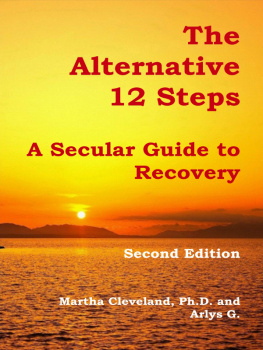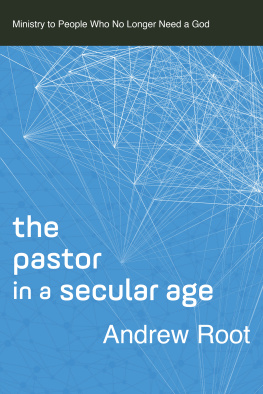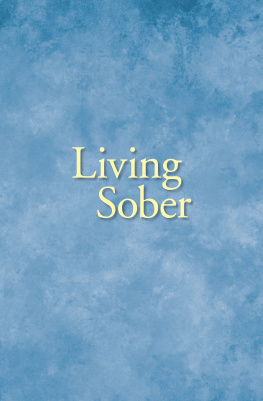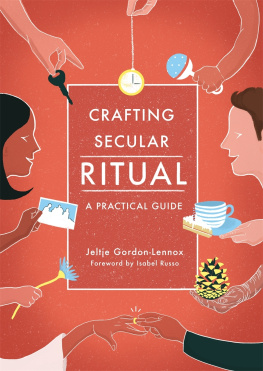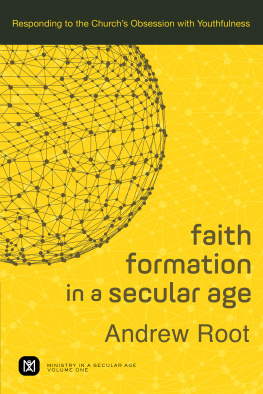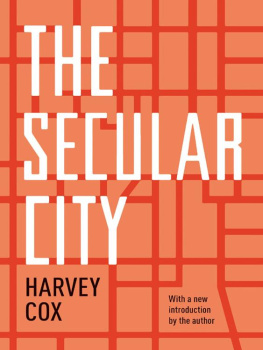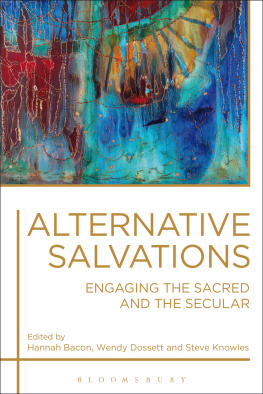Martha Cleveland - The Alternative 12 Steps: A Secular Guide to Recovery
Here you can read online Martha Cleveland - The Alternative 12 Steps: A Secular Guide to Recovery full text of the book (entire story) in english for free. Download pdf and epub, get meaning, cover and reviews about this ebook. year: 2014, publisher: AA Agnostica, genre: Religion. Description of the work, (preface) as well as reviews are available. Best literature library LitArk.com created for fans of good reading and offers a wide selection of genres:
Romance novel
Science fiction
Adventure
Detective
Science
History
Home and family
Prose
Art
Politics
Computer
Non-fiction
Religion
Business
Children
Humor
Choose a favorite category and find really read worthwhile books. Enjoy immersion in the world of imagination, feel the emotions of the characters or learn something new for yourself, make an fascinating discovery.
- Book:The Alternative 12 Steps: A Secular Guide to Recovery
- Author:
- Publisher:AA Agnostica
- Genre:
- Year:2014
- Rating:5 / 5
- Favourites:Add to favourites
- Your mark:
- 100
- 1
- 2
- 3
- 4
- 5
The Alternative 12 Steps: A Secular Guide to Recovery: summary, description and annotation
We offer to read an annotation, description, summary or preface (depends on what the author of the book "The Alternative 12 Steps: A Secular Guide to Recovery" wrote himself). If you haven't found the necessary information about the book — write in the comments, we will try to find it.
The Alternative 12 Steps: A Secular Guide to Recovery — read online for free the complete book (whole text) full work
Below is the text of the book, divided by pages. System saving the place of the last page read, allows you to conveniently read the book "The Alternative 12 Steps: A Secular Guide to Recovery" online for free, without having to search again every time where you left off. Put a bookmark, and you can go to the page where you finished reading at any time.
Font size:
Interval:
Bookmark:

The Alternative 12 Steps:
A Secular Guide
To Recovery
Martha Cleveland, PH.D.
and
Arlys G.
Second Edition
AA Agnostica
The Alternative 12 Steps:
A Secular Guide to Recovery
Second Edition
Copyright 2014 by AA Agnostica. All rights reserved.
Library and Archives Canada Cataloguing in Publication
Cleveland, Martha, author
The alternative 12 steps: a secular guide to recovery /
Martha Cleveland, Ph.D. and Arlys G. - Second edition.
Includes bibliographical references.
Issued in print and electronic formats.
ISBN 978-0-9917174-6-0 (pbk.) ISBN 978-0-9917174-7-7 (html)
1. AlcoholicsRehabilitation. 2. Twelve-step programs.
3. Alcoholics Anonymous. I. G. Arlys, 1945-, author II. Title.
III. Title: Alternative twelve steps.
HV5278.C73.2014 362.292'86 C2014-904883-1
C2014-904884-X
Published in Canada by AA Agnostica (aaagnostica.org) with a Foreword by Roger C.
Originally published in 1991 by Health Communications, Inc.
Ebook version formatted by Chris G.

To my sons Peter and Vladimir Jr.
Arlys
To my parents who set my feet on the path.
To Walter who has walked with me every inch of the way.
Martha
The Twelve Steps are reprinted and adapted with permission of Alcoholics Anonymous World Services, Inc. Permission to reprint and adapt the Twelve Steps does not mean that AA has reviewed or approved the content of this publication, nor that AA agrees with the views expressed herein. AA is a program of recovery from alcoholism use of the Twelve Steps in connection with programs and activities which are patterned after AA, but which address other problems, does not imply otherwise.
The Twelve Steps of Alcoholics Anonymous
1. We admitted we were powerless over alcohol that our lives had become unmanageable.
2. Came to believe that a Power greater than ourselves could restore us to sanity.
3. Made a decision to turn our will and our lives over to the care of God as we understood Him.
4. Made a searching and fearless moral inventory of ourselves.
5. Admitted to God, to ourselves and to another human being the exact nature of our wrongs.
6. Were entirely ready to have God remove all these defects of character.
7. Humbly asked Him to remove our shortcomings.
8. Made a list of all persons we had harmed, and became willing to make amends to them all.
9. Made direct amends to such people wherever possible, except when to do so would injure them or others.
10. Continued to take personal inventory and when we were wrong promptly admitted it.
11. Sought through prayer and meditation to improve our conscious contact with God, as we understood Him, praying only for knowledge of His will for us and the power to carry that out.
12. Having had a spiritual awakening as the result of these steps, we tried to carry this message to alcoholics, and to practice these principles in all our affairs.
We can learn the universal, generic pattern of life's dance from the 12 Steps. But in our individual dance of life, we choose our own music and dance our own dance.
From the chapter on Step 3
By Roger C.
This is a remarkable book.
And there are at least two very good reasons for that.
Secular Steps
First, there is in this book, to the best of our knowledge, the first non-Godly version of the 12 Steps ever published.
The original version, of course, written by Bill Wilson and published in Alcoholics Anonymous in 1939, refers to God (or a Power or Him) six times.
That's way too much God for many of us.
And, to be sure, many in AA had already taken action to circumvent the God bit. In fact the term God bit comes from Jim Burwell, one of the first members of AA, who convinced Wilson to make the 12 Steps a suggested program of recovery rather than a required one in the AA fellowship.
Meetings for non-believers in AA have been around for a long time. Quad A (Alcoholics Anonymous for Atheists and Agnostics) was launched in 1975 in Chicago. Only a few years later, in Los Angeles, Charlie P. and Megan D. started the very first AA meeting called We Agnostics. It is named, of course, after a chapter in Alcoholics Anonymous (often called the Big Book).
Today there are hundreds of AA meetings for agnostics and atheists in major cities across the United States and Canada. And more coming, more and more quickly.
Moreover, there is now plenty of literature for those who do not believe that an interventionist deity has a role to play in their sobriety.
For example, in 2013, Joe C. published a book of daily reflections called Beyond Belief: Agnostic Musings for 12 Step Life. That same year The Little Book: A Collection of Alternative 12 Steps was published and it contains the secular version of the Steps, written by Martha Cleveland and Arlys G., which are at the core of this book.
All of the above is meant to place The Alternative 12 Steps: A Secular Guide to Recovery written in the middle of this history in 1991 in a historical context.
The God bit is hardly dealt with at all in this book, except in the introduction, as an impediment for many people who could otherwise do a 12-Step program. What the authors do is find the root power of each step, and reword it.
As 12-Step practitioners, we believe in the 12-Step program. We believe it can work for anyone. Our objective is to help non-religious people accept the healing power of the Steps. This is the same program, same principles, same values, same scope, same depth all of it said in a little different language. We have extracted the actions and principles of the original Steps and put them into a secular context.
And they do it well! Anybody can understand Martha and Arlys. To use the Steps, there is no need for any particular religiosity; nor is there any need for psycho-jargon.
An example.
The original Step 6 says: Were entirely ready to have God remove our defects of character.
Martha and Arlys reword that Step to say: Be entirely ready to acknowledge our abiding strength and release our personal shortcomings.
In both cases, the person doing the Steps must be entirely ready. But in this book, the work isn't relegated to God. It is up to the individual to be prepared to take action. And, in this version, the individual doesn't only deal with personal shortcomings (or defects of character), but also acknowledges an abiding strength.
We shall deal with this more positive approach further on.
But in the meantime, we want to point out that, in fact, these can be the 12 Steps for anyone. Especially those without a belief in an interventionist God.
Women and the 12 Steps
The original 12 Steps were written by men for men. In particular, they were written for white men with well-to-do backgrounds.
This version of the Steps was written by two women.
Does that mean it is just for women?
No. It means that Martha and Arlys add some much needed balance to the Steps.
For instance.
There is a tremendous emphasis on powerlessness and humility in the original 12 Steps. While the idea of being powerless over alcohol makes sense, the idea that a human being is by his or her very nature powerless is another matter entirely. And yet it is deeply ingrained in the original Steps.
In this day and age, preaching powerlessness and humility to women would seem a bit off kilter.
Font size:
Interval:
Bookmark:
Similar books «The Alternative 12 Steps: A Secular Guide to Recovery»
Look at similar books to The Alternative 12 Steps: A Secular Guide to Recovery. We have selected literature similar in name and meaning in the hope of providing readers with more options to find new, interesting, not yet read works.
Discussion, reviews of the book The Alternative 12 Steps: A Secular Guide to Recovery and just readers' own opinions. Leave your comments, write what you think about the work, its meaning or the main characters. Specify what exactly you liked and what you didn't like, and why you think so.

